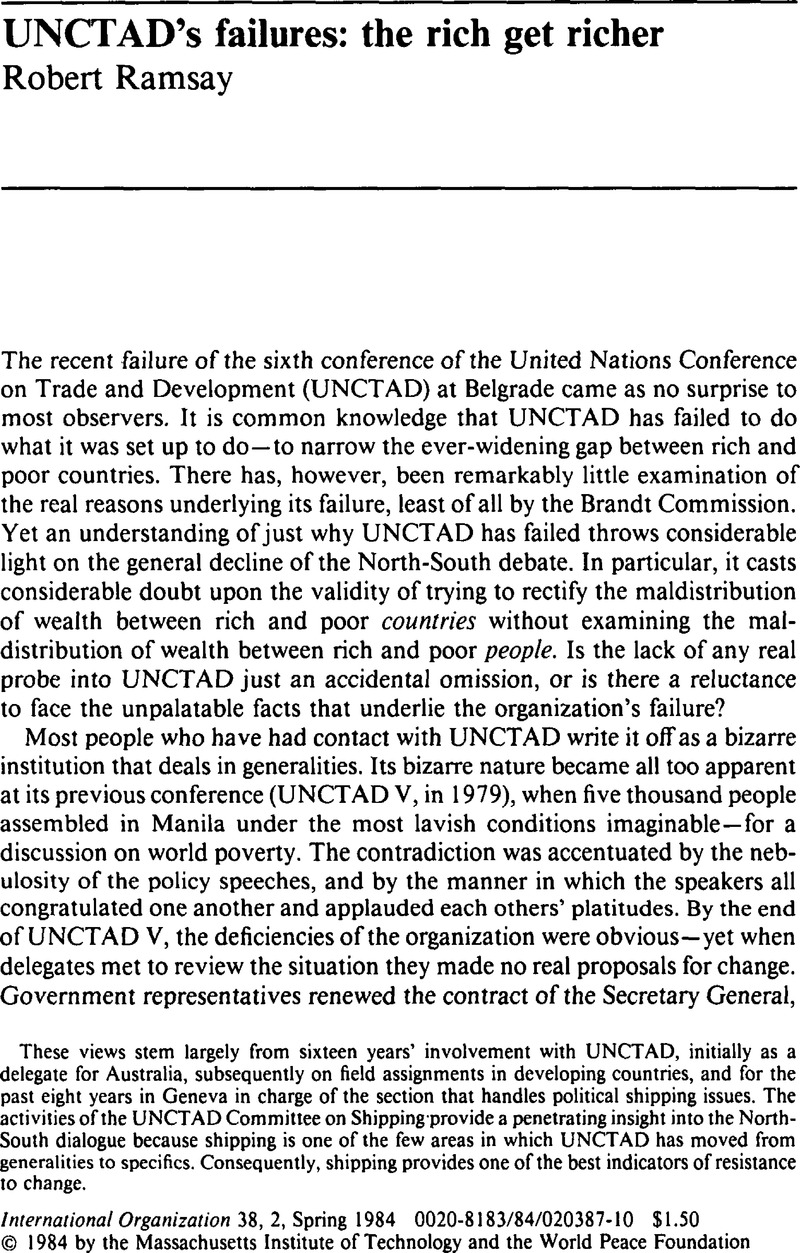Published online by Cambridge University Press: 22 May 2009

1. Some business organizations that can claim to be international (by virtue of the geographical spread of their membership) have official consultative status with UNCTAD; otherwise, they usually try to have representatives attached to their government delegations. The extent of the influence of such business interests has been the subject of specific comment in UNCTAD (see the secretariat report Open Registry Fleets, TD/B/C.4/220 [Geneva, 3 03 1981], especially p. 15)Google Scholar. Prior to UNCTAD V, the secretariat made a very limited proposal for cargo-sharing in regular bulk traffic with developing countries. As the concept of cargo-sharing had already been accepted in the liner trades (which are regular), it would have been difficult to oppose this proposal on grounds of logic or equity. Nevertheless, an association of tanker owners circulated counterarguments against a so-called “UNCTAD proposal to introduce cargo-sharing into all bulk trades.” As most bulk trades are irregular, the association had no difficulty in painting an horrific picture of the practical difficulties that would arise. By exaggerating proposals, business organizations can strengthen the arguments against any international action whatsoever.